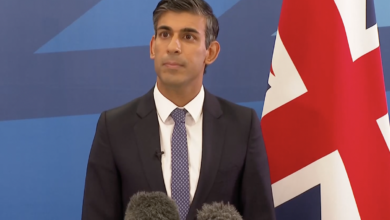Refugee ‘living in fear’ after Home Office threaten to deport him to Taliban-controlled Afghanistan

An Afghan refugee is living in “fear of deportation” after the Home Office served him with a removal notice to his Taliban-controlled homeland.
In what is thought to be a rare case, the government has told Shafiqullah Khaksar that he has to explain in writing why he should not be deported.
There have been no forced removals from the UK to Afghanistan since at least the end of September 2021, according to the latest Home Office data which runs up to summer 2022. However five Afghans have been deported to a destination which is not their home country.
Mr Khaksar, 29, arrived in the UK after a perilous journey across the Channel at the end of September. He spent a few days in the overcrowded Manston processing centre before he was prosecuted for entering the UK without a passport.
He was convicted on 29 September after he was told to plead guilty by an on-duty solicitor, and was jailed for 12 months. Mr Khaksar is now trying to challenge his deportation but has only been able to speak to a lawyer a handful of times since being incarcerated at Maidstone prison.
Mr Khaksar grew up in the UK, having spent a decade here after he first arrived as a child in 2006, and is very Westernised, his friends said.
In a statement passed to his friend Gulwali Passarlay from prison, Mr Khaksar said: “I feel criminalised and penalised for seeking protection and asylum in the country that I have spent half my life in. It’s disappointing and disheartening to be treated with such lack of compassion and understanding for my circumstances.
“I have left my pregnant wife and elderly mother in Afghanistan. If my life wasn’t in danger, I wouldn’t have done that. Crossing the English Channel was a life-or-death situation and I request humane and fair treatment from the Home Office, not punishment and imprisonment for arriving irregularly.
“Seeking asylum is our human right. I have not only been treated inhumanely but I am being kept in fear of deportation and limbo.”
A notice of the Home Office’s decision, sent to Mr Khaksar on 9 November, reads: “You were convicted of enter [sic] United Kingdom without a passport, for which you were sentenced to 12 months imprisonment. As a result of your criminality, the Secretary of State deems your deportation to be conducive to the public good and as such you are liable to deportation.”
It continues: “The Secretary of State proposes to give directions for your removal to Afghanistan … If there are any reasons why you should not be deported there, or if there are any reasons why you believe you should be deported to another country or territory, you must tell us in writing within 20 working days.”
His friends are hopeful that Mr Khaksar will not be deported imminently as the Home Office has a legal obligation to consider his asylum claim before he is deported. It is thought the deportation notice was triggered automatically because of his prison sentence.
Mr Khaksar has no other criminal convictions, the Crown Prosecution Service confirmed.
According to Home Office data on returns, there have been 12 “voluntary returns” of Afghans since the Taliban’s takeover in August 2021. These are cases where the person agrees to leave and is assisted in doing so by the government. Three of these people are recorded as being returned to Afghanistan.
There are also five cases of “enforced returns”, or deportations; three recorded in April to June this year, and two recorded in January to the end of March 2022.
Shafiq (left) has volunteered with a number of NGOs helping with translation
Mr Khaksar said Home Office officials have told him he could volunteer to return to Afghanistan.
Government guidance on Afghanistan states that the risk of harm for returnees has decreased since the Taliban takeover. It says: “Given the significant decrease in the levels of violence, there is no part of Afghanistan where, in general, conditions are such as to result in serious harm.”
But decision-makers are told they “must consider whether there are particular factors relevant to the person’s circumstances which might nevertheless place them at risk”.
In a separate briefing note on risk, decision-makers are also told that a person is at risk from the Taliban if they have “credibly resisted or opposed” the regime or if they are “perceived as ‘Westernised’ after having spent time in the West”.
Gulwali Passarlay (left) with Shafiq





